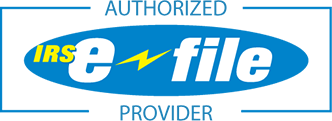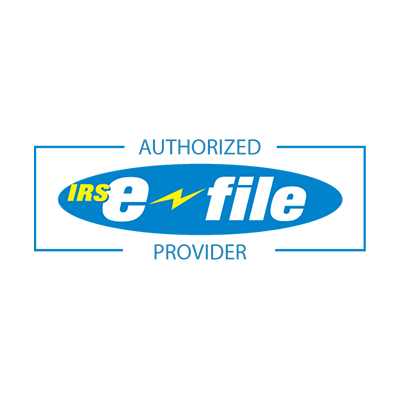Congress’ right to regulate interstate commerce is an old concept in the US. The Founding Fathers thought it so important that it was enshrined in the Constitution in what’s known as the Commerce Clause. Today, one of the ways the Federal Motor Carrier Safety Administration (FMCSA) carries out the Commerce Clause is by giving trucking companies the authority to haul regulated commodities across state lines. Among the myriad of other hoops you have to jump through while starting your trucking company, obtaining and maintaining motor carrier authority may feel minor, but it’s vital if you ever want to leave your home state.
How do you obtain your own operating authority, and once you get it, how do you maintain it? To learn the answers to these questions, we spoke to Troy Thurgood, President, CEO, and Founder of Thurcorp, a trucking compliance consultancy that helps trucking companies achieve and maintain compliance.
What is Operating Authority?
One of the ways the FMCSA regulates the trucking industry is by granting companies Operating Authority (currently identified by an MC number), which allows companies that transfer passengers or regulated commodities for some kind of compensation to cross state lines. There are three different types of motor carrier authority: common carrier, contract carrier, and broker.
A common carrier is not subject to a contract and can haul anything from anyone, while a contract carrier is primarily dedicated to one company and only hauls for them. A broker, on the other hand, arranges loads for carriers and takes responsibility for ensuring that the load gets to its destination. Brokers take payment for the load and are responsible for ensuring the carrier is paid. If you can’t decide which type you need, don’t worry. You can apply for more than one type of authority, and it doesn’t matter a great deal whether you have contract carrier or common carrier authority anymore.
Not all companies are required to have operating authority. For instance, a company that only transports its own cargo or hauls exempt commodities is not required to have it. Additionally, companies that operate exclusively within a federally designated “commercial zone” are exempt from interstate authority rules. However, even if a company is not currently required to have motor carrier authority, many will still go ahead and obtain it, says Mr. Thurgood. This is because the application process can take several weeks, and it’s best to already have it in place in case your company’s situation changes and it becomes necessary.
In order to receive authority, your company must meet certain requirements and apply for it through the FMCSA.
How Do You Apply for Motor Carrier Authority?
Before you apply for authority, you first need to start by registering your business entity. The type of entity (LLC, corporation, etc.) doesn’t matter; you just need to form a business and acquire a tax ID number for it from the IRS. If you are a first-time applicant who has never registered with the FMCSA before, you will need to register for a US Department of Transportation (USDOT) number, which is not the same thing as an MC number. All motor carriers operating in interstate commerce are required to obtain a DOT number, not just those transporting regulated commodities. Fortunately, if you don’t have one already, you can apply for both a DOT number and an MC number at the same time. You generally cannot have an MC number without also having a DOT number, though.
While the application process can be completed quickly, it can take the FMCSA three to five weeks to process it, says Mr. Thurgood. During this time, the DOT must post your application in the federal register for 21 days. During this time, objections can be raised about your application. Think of this as the “Speak now or forever hold your peace!” moment in wedding ceremonies. Much like at weddings, objections are extremely rare, and after this review period ends, your motor carrier authority will typically be issued without any hiccups—as long as you complete a few things on your end, that is.
File UCR Registration
While your application is under review, you’ll need to file Unified Carrier Registration (UCR), which is an annual registration requirement that entitles carriers to operate in all states, and must be completed in order to obtain a USDOT number. Upon registration, you must pay annual fees to support the enforcement of FMCSA regulations in each state. UCR registration fees vary depending on the size of the carrier. Small carriers (1-2 vehicles) currently pay $42, while large carriers (51+ vehicles) pay over $5,000.
File a BOC-3 Form
You will also need to file a BOC-3 form with the FMCSA if you want to operate for hire, which is a given if you are applying for motor carrier authority. The BOC-3 form, also known as a “Process Agent Designation” form, lists the contact information for your company’s designated process agent, who is responsible for receiving legal documents on behalf of the company in any state in which you operate.
File Proof of Insurance
Finally, you will need to file proof of insurance with the FMCSA. This is a significant requirement for new trucking companies, as insurance premiums are high for new ventures. Generally, you are required to have a minimum policy of $750,000, which can cost $15-$20,000 per year for new companies, explains Mr. Thurgood. You may also have limitations on your policy, such as a maximum number of drivers or miles you can drive. After a few years, new markets may open up for you if your safety scores are good and you can find lower premiums.
Once Authority is Issued:
Once your Authority is issued, it will remain active as long as you remain on your best behavior. In practice, this means that you:
1) Make sure your insurance stays active. While commercial trucking insurance premiums will be high in the first few years, as long as you comply with FMCSA regulations and maintain a good safety record, insurance costs should decrease for you over time. If you lose coverage, your authority will also lapse. Losing coverage and having your authority revoked is a mess you don’t want to get into if you can help it.
2) Update your DOT number at least every two years. You must update your DOT number at least every two years to ensure that all the information on file is accurate and up to date. Even if it’s been less than the required two years, anytime you change your business name or address, or any other details in your record, you should also update your USDOT and operating authority record with the FMCSA. Failing to update your record can result in penalties and other issues, so don’t let this requirement fall to the wayside.
3) Maintain good safety scores. In addition to your safety score being important to insurance markets, it is also important to the FMCSA. This score is a number between 0 and 100 that is assigned to you based on a range of factors such as crash history, compliance with hours-of-service regulations, and the results of safety audits and inspections. The better the safety record, the better the score. When your score gets too high, you could face additional scrutiny or enforcement action by the FMCSA, including having your operating authority revoked. In addition, you will find it challenging to get good loads.
It is also important to stay up-to-date with the latest regulations and requirements for operating a trucking business. In Mr. Thurgood’s experience, the FMCSA regularly updates its rules and regulations, so it is essential to stay informed and comply with all relevant laws. By maintaining your motor carrier authority and staying compliant, you can continue to operate your trucking business without any issues.
Don’t Forget to File Your Form 2290!
In order for heavy vehicles to legally drive on public roads (which is essential for a trucking company), you need to first file Form 2290 and pay the HVUT. With i2290, doing so is easy. All you have to do is create an account, enter in some information about your trucks and your business, and our software will automatically calculate your taxes for you. The entire process takes only a few minutes, and once you submit your return, you’ll receive a stamped Schedule 1 almost instantly.
Are you ready for a better way to pay the HVUT? Create an account with i2290 today!
About Thurcorp
Thurcorp is a compliance consulting company that helps other trucking companies comply with the complex rules and regulations of the trucking industry. After two decades in the industry, Thurcorp has accumulated the necessary knowledge and expertise to help you navigate through every aspect of starting and operating a trucking business. Whether you need assistance with monitoring and reporting, maintenance and inspections, maintaining driver records, handling DOT requirements, or taking care of registrations and renewals, Thurcorp has the resources to help you in all of these areas, and so much more. Contact Thurcorp today to speak to your trucking compliance experts!
Special note: This article is for general purposes, and is not intended to provide, and should not be relied on for tax, legal, investment, or accounting advice. The best way to ensure you’re properly obtaining operating authority and paying appropriate taxes is by following IRS regulations and consulting with a professional.


